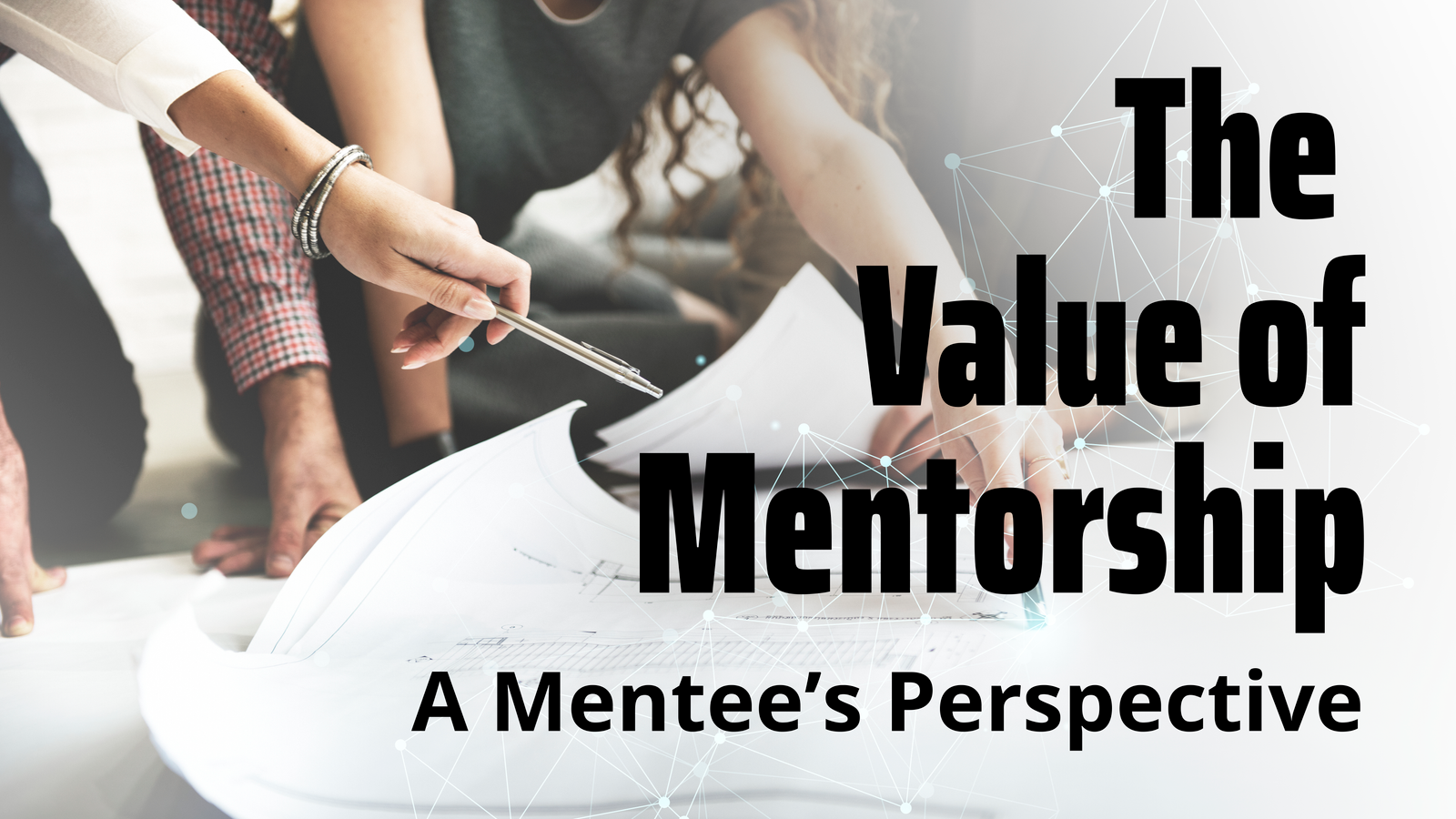
The Value of Mentorship: A Mentee’s Perspective
By: Sammi Woronoff, RID, IIDA
Healthcare Interior Designer, Gresham Smith
In college, I took for granted how just one moment could change the course of my career. How one brief encounter led me to where I am today, while for someone else, one decision, one opportunity or one missed opportunity could be the catalyst for change in their life. For me, that catalyst was a mutual acquaintance. What started off as a simple relationship turned into having a supervisor, mentor and personal advocate who furthered my professional opportunities with just five minutes spent answering an email. It is those opportunities that sometimes have the strongest impact, and we all have the potential to create this influence when serving as a mentor.
Almost everyone, at some point in their education or professional career, partakes in some sort of mentor relationship, whether they realize it or not. Usually this relationship starts early in someone’s adult life because that typically is the most formative, impactful and overlooked time in a career. In this industry, collaboration is the main key to successful projects, and the sentiment is the same for personal success as well. Collaborating, giving advice and sharing experiences bring us closer as an industry, and it teaches us that relying on one another is not a dependence but an opportunity.
Mentorship combines the power of industry-wide collaboration with the specific attention and focus of a one-on-one connection. This can take many different forms, such as coffee before work, a project tour or document review, practice interviews and portfolio reviews or recurring meetings dedicated to asking questions. Time is an incredible asset that nobody can afford to waste in this profession. However, taking a moment to share this resource with a mentee can instill confidence and strengthen potential that can change the course of a career.
The Value Proposition
While it is sometimes assumed that being a mentor only serves as a leadership or service role, it can prove to be mutually beneficial when fully utilized. While most mentors have years of work experience, job site knowledge and workplace etiquette skills, mentees can provide innovative technological skills, recent design trends and generational shifts. Encouraging expectations of the give and take of knowledge from the beginning sets the stage for a successful and ongoing mentorship with involved participants on both sides.
Most mentees are eager to hear about a seasoned mentor’s previous project experience and professional advice. An added benefit is creating deeper industry connections and consistent networking outlets. Beyond hearing about project successes and unique project requirements, mentees can hear about personal lessons learned and mistakes from their mentors. Learning from failures can often be even more beneficial than learning from successes, and the personal nature of a mentorship provides a great environment to share these stories.
Most mentors offer their insight on an as-needed basis, but there is a great opportunity to create a long-term relationship instead of a one-time conversation. Sometimes the best relationships are the ones that spark naturally in the workplace or through an organization, but that does not have to be the only mentorship starting point.

How to Make it Last
If you are unsure of how to strengthen your mentor relationship, stick to the foundational basics of what you both want to achieve and let that lead the way:
- Professional development
- Technical knowledge and skills
- Personal growth
A main resource for mentees is the search for tools to aid professional development. This is the hardest aspect of the job to learn in school because nothing in a classroom can accurately simulate the professional world. From learning proper workplace etiquette to practicing communication with a contractor, professional development is a key benefit to any mentor relationship. Some useful examples of professional development objectives are focusing on past experiences and knowledge, reviewing professional documents such as resumes and portfolios and practicing interview skills.
Technical knowledge can be another important focus throughout the course of your mentorship. This can include market-specific information, company-specific business standards or basic technical drawing conventions. Explaining the purpose of a specific technical practice, such as a millwork section, or focusing on resources for technical project needs, such as consultant coordination, can be very helpful to a student or young professional.
Personal growth is a subconscious process that is constantly affected by our actions and our surroundings. While this might not be at the top of someone’s list of career development goals, personal growth can benefit everyone in most facets of their life. This developmental process will look different to every mentee and mentor, but it helps to start with a conscious effort to explore, learn, and question.
How to Find a Mentor or Mentee
If you are looking to serve as a mentor or be someone’s mentee, there are a variety of ways to get involved. For students, start first with your University. Professors and advisors are a great resource with professional experience. Furthermore, some universities or student groups provide resources specifically for finding mentors through past professors, alumni or local businesses.
If you want to become a mentor to someone, start by looking within your company. Are there any younger employees or interns in your office eager to learn from your professional knowledge? Beyond work, utilize the local professional organizations, such as ASID Alabama, IIDA Alabama or AIA Alabama.
If you are looking for an opportunity to participate in an on-going mentorship program within the state of Alabama, check out the IIDA / ASID Connect Mentorship program. This program was created specifically to provide a dedicated outlet for seeking mentees or mentors by providing a facilitated, on-going opportunity for networking and mentorship.
Take a step to make the initial connection with someone and give it the focus to let it flourish over time. That one extra moment you take reaching out to someone just might be the catalyst in their education, their career and their success.